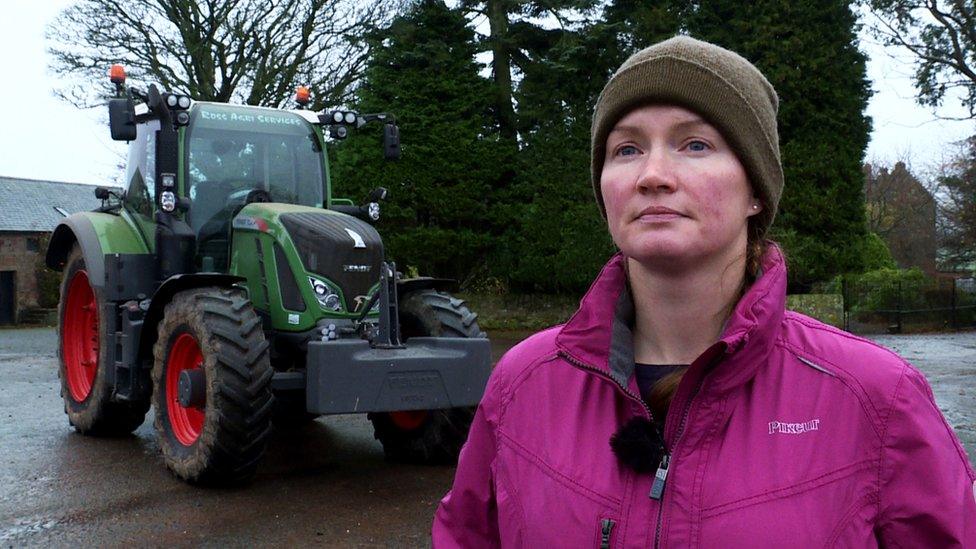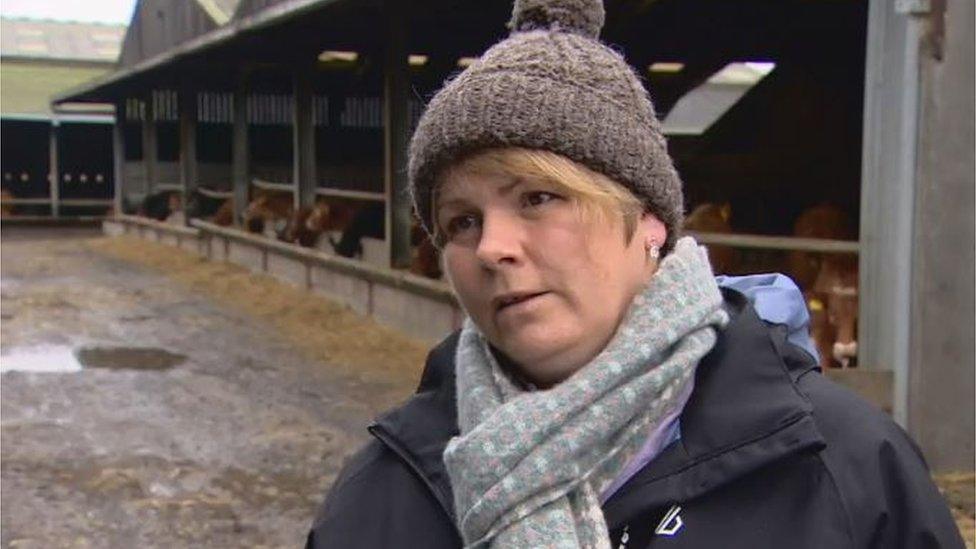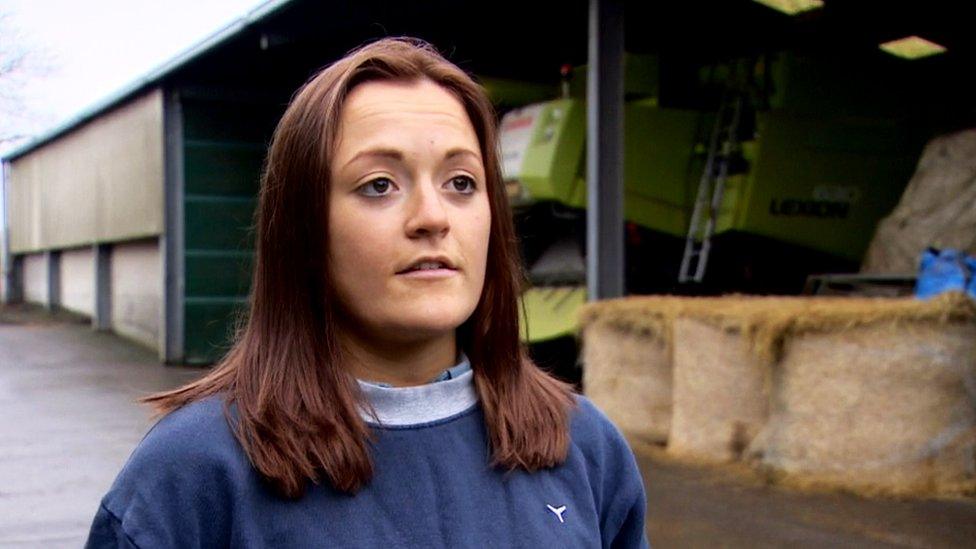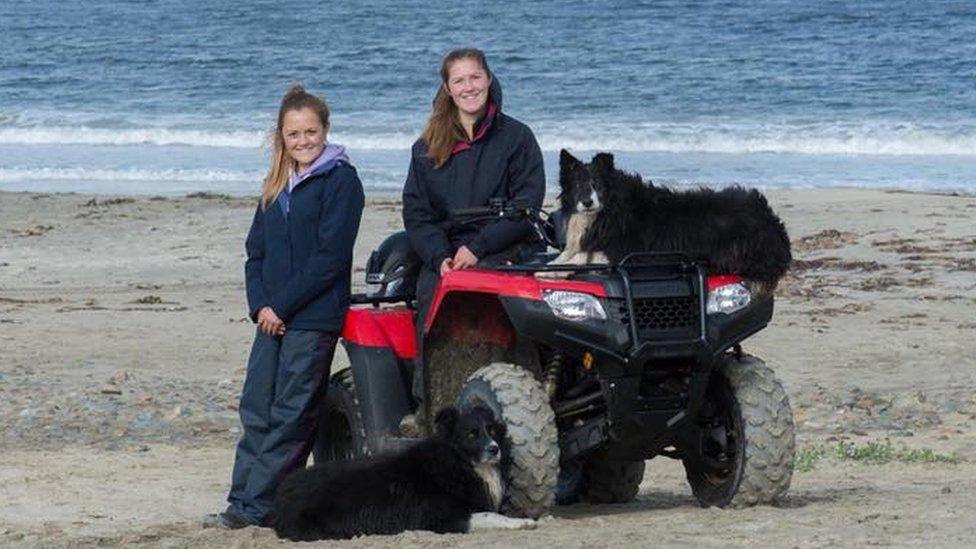Women in farming excluded by 'outdated attitudes'
- Published

Amy Geddes said farming needed to be promoted as a career for girls
Women working in Scotland's agriculture sector are being excluded by "outdated attitudes and behaviours", a Scottish government panel has concluded.
The Women in Agriculture Taskforce said a gender bias meant work undertaken by women was being undervalued, downplayed or simply unseen.
Taskforce co-chair Joyce Campbell said the report shone light into some "very dark corners of Scottish agriculture."
It recommends that key organisations undertake unconscious bias training.
The taskforce was set up by First Minister Nicola Sturgeon to address inequality in the farming sector.
Its final report said the main barriers women faced were cultural rather than legal.
It concluded that gender bias in the industry meant women were unlikely to be successful if standing for leadership positions.

Joyce Campbell says the report shone light into some "very dark corners of Scottish agriculture"
Ms Campbell, a sheep farmer in Sutherland, told BBC Scotland: "Scottish agriculture has been missing a trick by not having women representing the industry at board level and at leadership roles.
"Women are the backbone of Scottish farming and crofting and they are really active on farms but they are not always visible.
"I don't think the systems have allowed women to come through as much as they could have done."
The report makes 24 recommendations, including women-only skills training and improvements in rural childcare provision.
It also called for an Equality Charter for Scottish Agriculture which, by the end of 2022, organisations would have to comply with if they were formal Scottish government stakeholders.
New entrants are identified as vital in changing the culture because women often enter the sector in an equal relationship with a male partner.
The taskforce calls for government agencies to provide more opportunities for people to enter the industry.

Aimee Budge says the culture is changing
Aimee Budge, a 22-year-old livestock farmer in Shetland along with her sister Kirsty, believes her generation of women will have a much better experience of working in the industry.
She said: "I think the culture is changing and will change more.
"I studied agriculture at university and there were 30 of us in the class, about half were boys and half were girls, compared to when my dad was at uni and there were maybe three girls out of a class of 30."
"So, there is change there and you do see women coming up into the higher roles."
Arable farmer Amy Geddes, from Arbroath, said: "l think there's still perhaps an undertone of the traditional view. I don't think the broader public appreciate that you can be female and be a farmer.
"We do need to work on promoting the fact that it's a career for girls as well as boys.
"I think it will come and I think it will be to the detriment of our industry if it doesn't."
Rural Economy Secretary Fergus Ewing said: "I am hopeful that, once women are appropriately represented in leadership positions and feel supported to play the role they want in this key industry, that will help deliver the productive, inclusive and sustainable industry Scotland needs."
- Published15 June 2018
